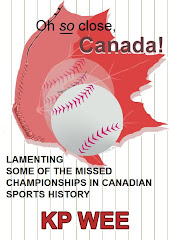Purists and critics have complained that far too many wild card teams in baseball have been winning or making it to the World Series.
These teams weren't even good enough to win their own division, for crying out loud!
Yet, once these second-place outfits get on a roll and get into the post-season, they start knocking other teams off.
In 2007, it was the Colorado Rockies in the National League. The 2006 Tigers and 2005 Astros also made it to the Fall Classic.
The 2004 Red Sox used the wild card route to make the post-season before stunning the world with their record-setting triumph over the Yankees in the ALCS and an anti-climatic sweep over St. Louis in the Fall Classic.
1997 and 2003 Marlins. 2002 Angels and Giants. And on and on.
Based on the current format, wild card teams do not have home-field advantage in the Division Series or League Championship Series, regardless of their won-loss records. (It's possible for a wild card team to have a better record than a division winner, but the latter will have the extra home game.)
Well, if wild card teams in baseball are havin so much success--or luck--why not give them more of a disadvantage, or penalty, if you will, for not winning their divisions?
At the present time, the Division Series is a best-of-five, with the series going 2-2-1 and the wild card team having the middle two games.
A wild card team could potentially split the first two, go home for the middle two games and sweep them, and move on to the League Championship Series.
I propose the following to eliminate such an "advantage" for these non-division champs:
Let the wild card host the first game.
Yes, you heard me right. The first game should be hosted by the "inferior" team.
Then here's the kicker.
The division winner will then host the remaining four games of the series.
That's right, a 1-4 format, with the wild card team getting just one home game, and it can't come in any of the "key" or pivotal middle games.
If a wild card team can survive that, then kudos to that team.
And let's say that team makes it past the Division Series and moves on to the League Championship Series, again, the current 2-3-2 format could be favorable.
Again, split the first two, and get the next three at home. What disadvantage is that?
My solution:
3-2-2, with the division champ hosting five of a possible seven contests.
Again, under this proposed format, if the wild card team somehow survives the first three games going 2-1, this forces them to have to win their lone two home games, otherwise they have to return to enemy territory to try and advance to the World Series.
This probably will never happen, but if baseball wants to eliminate the wild card "advantage", they must go an unconventional route in order to accomplish this.
Does anyone else out there have any bright ideas for the wild card? Discuss.
"Showing Their Scales" and "The Hockey Farmer"
We are pleased to introduce the works of local B.C. authors KP Wee and Farhan Devji to you:
"Showing Their Scales" contains three tales of lies, lust, and deception. These are short novels which deal with betrayal and revenge, with three main male characters and how they end up hurting the women in their lives.
**Catch an episode of BlogTalkRadio here with KP's interview on his books, recorded Dec 29, 2008.**
"The Hockey Farmer" is a story about Logan Watt, who hails from Cochrane, Alberta, and has to decide whether to rehabilitate the legendary family farm or pursue an unlikely career in professional hockey. The story also shifts to Vancouver and contains numerous Vancouver Canucks references.
Help support a pair of B.C. authors by picking up your own copies today!
-- "The Hockey Farmer" can be purchased here,
while "Showing Their Scales" can be bought here. --
"Showing Their Scales" contains three tales of lies, lust, and deception. These are short novels which deal with betrayal and revenge, with three main male characters and how they end up hurting the women in their lives.
**Catch an episode of BlogTalkRadio here with KP's interview on his books, recorded Dec 29, 2008.**
"The Hockey Farmer" is a story about Logan Watt, who hails from Cochrane, Alberta, and has to decide whether to rehabilitate the legendary family farm or pursue an unlikely career in professional hockey. The story also shifts to Vancouver and contains numerous Vancouver Canucks references.
Help support a pair of B.C. authors by picking up your own copies today!
-- "The Hockey Farmer" can be purchased here,
while "Showing Their Scales" can be bought here. --
The Hockey Farmer / Showing Their Scales

Subscribe to:
Post Comments (Atom)
Brief Resume Highlights
Writing Experience
- Bleacher Report: contribute articles on the Vancouver Canucks, Boston sports, hockey, and baseball at least three times a week (2007-Present); edit sports-related articles from other posters (2008-Present)
- UCL: developed Career Planning curriculum (2007); consulted on for other curricula issues (2005-Present)
- Consumer Research: submitted unsolicited proposals for improvements on company operations (2005)
- B.U.D. College: developed Grammar curriculum consisting of five levels (2004); edited curricula for other courses (2004)
- KGIC: developed Career Planning curriculum proposal for Surrey campus (2004)
Writing Accomplishments
- Named Bleacher Report Bruins Community Leader (2008)
- Bleacher Report: contribute articles on the Vancouver Canucks, Boston sports, hockey, and baseball at least three times a week (2007-Present); edit sports-related articles from other posters (2008-Present)
- UCL: developed Career Planning curriculum (2007); consulted on for other curricula issues (2005-Present)
- Consumer Research: submitted unsolicited proposals for improvements on company operations (2005)
- B.U.D. College: developed Grammar curriculum consisting of five levels (2004); edited curricula for other courses (2004)
- KGIC: developed Career Planning curriculum proposal for Surrey campus (2004)
Writing Accomplishments
- Named Bleacher Report Bruins Community Leader (2008)




No comments:
Post a Comment